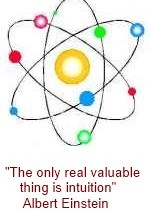Source:Intuition of Steve Jobs
Was Steve Jobs smart? Not conventionally. Instead, he was a genius. That may seem like a silly word game, but in fact his success dramatizes an interesting distinction between intelligence and genius. His imaginative leaps were instinctive, unexpected, and at times magical. They were sparked by intuition, not analytic rigor. Trained in Zen Buddhism, Steve Jobs came to value experiential wisdom over empirical analysis. He didn’t study data or crunch numbers but like a pathfinder, he could sniff the winds and sense what lay ahead.
Steve Jobs began to appreciate the power of intuition, in contrast to what he called “Western rational thought,” when he wandered around India after dropping out of college. “The people in the Indian countryside don’t use their intellect like we do,” he said. “They use their intuition instead … Intuition is a very powerful thing, more powerful than intellect, in my opinion. That’s had a big impact on my work.”
Jobs’s intuition was based not on conventional learning but on experiential wisdom. He also had a lot of imagination and knew how to apply it. As Einstein said, “Imagination is more important than knowledge.”
Einstein is, of course, the true exemplar of genius. He had contemporaries who could probably match him in pure intellectual firepower when it came to mathematical and analytic processing. Henri Poincaré, for example, first came up with some of the components of special relativity, and David Hilbert was able to grind out equations for general relativity around the same time Einstein did. But neither had the imaginative genius to make the full creative leap at the core of their theories, namely that there is no such thing as absolute time and that gravity is a warping of the fabric of space-time.
Einstein had the elusive qualities of genius, which included that intuition and imagination that allowed him to think differently (or, as Jobs’s ads said, to Think Different.) Although he was not particularly religious, Einstein described this intuitive genius as the ability to read the mind of God. When assessing a theory, he would ask himself, Is this the way that God would design the universe? And he expressed his discomfort with quantum mechanics, which is based on the idea that probability plays a governing role in the universe by declaring that he could not believe God would play dice. (At one physics conference, Niels Bohr was prompted to urge Einstein to quit telling God what to do.)
Both Einstein and Jobs were very visual thinkers. The road to relativity began when the teenage Einstein kept trying to picture what it would be like to ride alongside a light beam. Mr. Jobs spent time almost every afternoon walking around the studio of his brilliant design chief Jony Ive and fingering foam models of the products they were developing.
Jobs’s genius wasn’t, as even his fanboys admit, in the same quantum orbit as Einstein’s. So it’s probably best to ratchet the rhetoric down a notch and call it ingenuity. Bill Gates is super-smart, but Steve Jobs was super-ingenious. The primary distinction is the ability to apply creativity and aesthetic sensibilities to a challenge.
In the world of invention and innovation, that means combining an appreciation of the humanities with an understanding of science — connecting artistry to technology, poetry to processors. This was Jobs’s specialty. “I always thought of myself as a humanities person as a kid, but I liked electronics,” he said. “Then I read something that one of my heroes, Edwin Land of Polaroid, said about the importance of people who could stand at the intersection of humanities and sciences, and I decided that’s what I wanted to do.”
The ability to merge creativity with technology depends on one’s ability to be emotionally attuned to others. Jobs could be petulant and unkind in dealing with other people, which caused some to think he lacked basic emotional awareness. In fact, it was the opposite. He could size people up, understand their inner thoughts, cajole them, intimidate them, target their deepest vulnerabilities, and delight them at will. He knew, intuitively, how to create products that pleased, interfaces that were friendly, and marketing messages that were enticing.
Filed under: imagination, intuition | Tagged: creative, imagination, intuituon, perception, spiritual, Steve Jobs, subconscious, wisdom |





Ron..it is interesting that Jobs discover the importance of intuition in his journey through India when he was still a very young man…intuition is our best connection with Universal Intelligence but instead we settle for a superfical rational understanding.
Sid, thanks again for another very interesting, insightful and helpful analysis of an important psychological subject.
My favorite apt Einstein quote is:
“The intuitive mind is a sacred gift and the rational mind is a faithful servant. We have created a society that honors the servant and has forgotten the gift.”
I loved this line: “Jobs could be petulant and unkind in dealing with other people, which caused some to think he lacked basic emotional awareness. In fact, it was the opposite.” So often we jump to surface conclusions about who people are, what they do and why they do them when almost always the reasons are more complex. In Steve’s bio, someone is empathizing with him at one point about something, saying they know how he feels and he quite literally screams at them: “no you don’t. You have no idea what it’s like to be inside my head.” Truer words were never said.